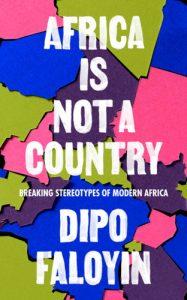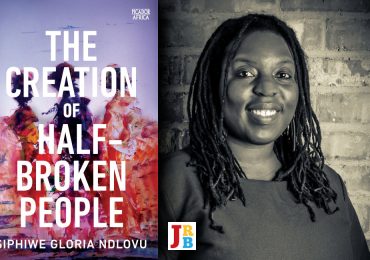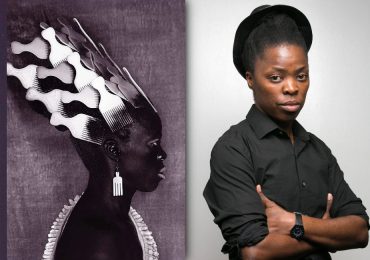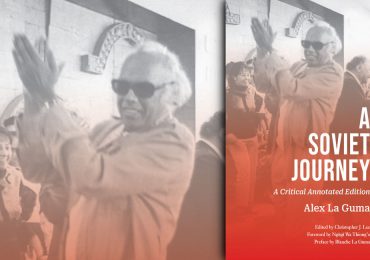When I read Africa is Not A Country: Breaking Stereotypes of Modern Africa by Dipo Faloyin, I was overcome with an exhausting familiarity. As each chapter of the book provided well-known examples of the West’s centuries-long belittling of our continent, I thought to myself, hasn’t this all been said before? As I was hit with nostalgia over the skewering of Anglo-American celebrity gaffes and jabs at patronising descriptions of our animals, landscapes and people, I wondered, in the year 2022, does it still bear repeating that Africa is, in fact, not a country? For Faloyin, the answer is a resounding yes. As a senior writer and reporter for VICE, where he covers international news stories with the kind of nuance missing from mainstream media outlets, he demonstrates how Europe’s pillaging of African land and resources, which started long before The Berlin Conference of 1884, continues to inform its economic, political, cultural and dubious charitable engagements with the continent.
While Africa is Not A Country strives to offer ‘a portrait of modern Africa that pushes back against harmful stereotypes’, this is an enormous, if not impossible, undertaking for one book to carry. What Faloyin does provide is a helpful entry point for readers whose impressions of Africa have been marred by years of indoctrination from mass media in the West. For readers who are aware of the historical grievances catalogued in Africa is Not A Country though, the book’s presence on the global publishing market raises some questions around the broader usefulness of these corrective exercises, especially when they come on the back of the racial reckonings that took place in 2020. In other words, if the West did start to see Africa differently, as those Facebook pages with photos of African skyscrapers have persistently urged the world to do, for whose benefit would that be? If our cultures, customs, languages and successes are only recognised when there is collective white guilt over black death in the diaspora, what does it say about the integrity of that recognition? Admittedly, these conflicts hang over the works of most black and African writers in the global publishing world. And in spite of these frustrating realities, Faloyin still believes that the continent’s rich identity and humanity are causes worth fighting for.
This interview has been edited and condensed for clarity.

Africa is Not A Country: Breaking Stereotypes of Modern Africa
Dipo Faloyin
Penguin, 2022
Khanya Mtshali for the JRB: Hi Dipo. First, congratulations on publishing your debut book. How has the publicity run been for you so far? Are you excited, exhausted or possibly nervous?
Dipo Faloyin: It’s been an exciting couple of months. When you write a book like this, it’s always hard to predict how it will do and where it will find its audience. But so far, it’s been received by such a broad, diverse audience, which is great. It’s also been good to see the book being picked up by so many schools, which I hope will have a promising impact on the way in which young people across the UK, especially, look at colonialism and the history of Africa. So yeah, it’s been a really fun and exciting time.
The JRB: For readers on the continent and in the diaspora, the themes you touch on in Africa is Not A Country will feel like a trip down memory lane. In fact, the title alone was a popular sentiment expressed by those of us who wanted to voice our frustrations with depictions of Africa in the West. There were a number of moments in the book where I thought, ah yes, I remember that (i.e., #Kony2012), or why does this need to be said? Surely they get the point by now (i.e., colonialism and neocolonialism)? And by they, I mean the readers for whom I assume this book has been written—curious, educated, Western liberals who may be familiar with the the Scramble for Africa, understand the ethical misgivings of filming poor African children under the guise of photojournalism, have tasted jollof rice and, most of all, have some kind of inkling that Africa is not a country. Instead of making assumptions, perhaps I should ask why you felt it was necessary to write this book now and who was your intended audience?
Dipo Faloyin: Yeah, as you said, it’s something that’s greatly frustrated me for as long as I can remember. I’m based in London but most of my family is still in Lagos and I lived there until I was twelve or thirteen. When I came to the UK, I realised that my own cultural identity was not appreciated here. I was immediately hit with so many misconceptions about the continent. For example, when you ask people here, both young and old, to picture Africa, they think of only two things: safari, poverty and nothing in between. And it’s something that I’ve run into time and time again throughout my life, so putting together this book was an opportunity to speak to those frustrations that have lived with me for years. A couple of years ago, we had the Black Lives Matter (BLM) protests around the world, where there was a real call for better understanding of race across the cultures of the West. It felt like a great time to have this particular discussion about Africa so I began the process of pitching and writing the book. When it comes to the audience [for Africa is Not A Country], I think it’s a very broad one. This is a portrait of modern Africa and it is our history, our present, our cultures and what could potentially be the future of different movements across the region. I wanted to write something that Africans across the continent could relate to and identify with in terms of certain feelings we’ve had around colonialism, the independence era and how these incredibly young countries have built and are building themselves up. I also wanted to write something for younger generations in Africa who are looking to have a larger influence on the politics and culture of their own nations. I’d also like the book to help people in the diaspora have a better understanding of the history of the region, because when you have that, you can have a better appreciation of how that history and culture got to where it is today. Then, of course, there is the white Western world, as you mentioned, which controls the media, Hollywood, charity campaigns and politics. I wanted to give them a real education as to the realities of the continent in the hopes that by understanding the past they don’t make the same mistakes in the future.
The JRB: I want to talk a little more about the title of the book, which has been published here as Africa is Not A Country: Breaking Stereotypes of Modern Africa. I’m curious as to why Africa had to be prefaced with the term ‘modern’? I’m aware that this kind of phrasing is common within academia, for example. But to me, it seems to suggest that the word Africa, alone, connotes a kind of primitiveness that the book argues against. Could you unpack the motivations behind the title choice? I must add that a lot of these decisions are often made by marketing departments at publishing houses.
Dipo Faloyin: The phrase ‘modern Africa’ is more about the timeframe, so it covers 1884 to today. The title is more of a reference to a timeframe than the actual culture of Africa. I’m not attempting to say, ‘oh here’s a look at modern, enlightened Africa’. No. Instead I’m covering how the world has come to relate to the continent from 1884 to today. So it’s more about locating this book in time as opposed to locating it in Western stereotypes of our cultural identities.
The JRB: You start the book with a prologue titled ‘Identities’, which includes tender descriptions of the characters and dynamics within your family. You describe your mother as someone who is ‘never more comfortable than when she is uncomfortable, cocooned by unfolding events out of her control, where the solution is always a family meeting’. You talk about being ‘descended from a long line of bad poker faces’, who also hold ‘a philosophy that questions why you would ever order something new off a menu when you know exactly what you want’. When you started writing the book, did you plan on weaving in personal anecdotes to build the case for the multifacetedness of African identities? And as a reporter who primarily focuses on telling other people’s stories, was it strange for you to lead with anecdotes from your own life?
Dipo Faloyin: Yeah, it was strange but I wanted the reader to build a personal connection immediately. I wanted them to understand that specificity. When I started to bring in the voices of colonists who considered all Africans to be an uncivilised monolith with predetermined destinies, I wanted to know, by that point, what a ridiculous concept that was without me having to do much explaining. I often think the best way to understand other people’s cultures is to connect with them on a personal level and to see yourself in that environment. When you start to understand people’s day-to-day lives, you can start to see yourself in them. You can start to go, ‘oh that’s a bit like my family’ or imagine what it’s like waking up there, living there, raising a family there or going to work every day there. I think it’s so key when we look at building connections with other people’s cultures. We have to empathise first and foremost with the humanity of the people in their day-to-day lives. I wanted to introduce that straight away to make people realise that there is value in that kind of specificity. Everyone has that opening [in the book] when they think about their families and their communities.
The JRB: In Part One, you write about Lagos which, in addition to Ikeji, is a place you consider your hometown. You provide lively vignettes about navigating Africa’s biggest megacity, some of which involve dealing with its notorious traffic, the necessity of getting favours done and the stark inequalities between the lagoon houses on stilts and neighbourhoods like Victoria Island or Lekki. I appreciated the section where you mention the importance of not romanticising some of the dysfunction in Lagos because it can be exhausting. How do you strike the balance between reflecting the realities of a megacity without being sentimental about its problems or reifying common Western ideas about the so-called failures of the postcolonial African state? I know for some, treating systemic issues as part of an African megacity’s quirky charm can be a way to make sense of its contradictions. But it can also gloss over how debilitating it can be to live in a place where you’re not classed, have no connections or an opportunity to leave.
Dipo Faloyin: To understand the identity of a place, you have to appreciate that it’s complicated. You have to engage in that complexity. What I’m trying to do is push back against a simplistic narrative or that single story of Africa. But I don’t want to replace it with another simple story or narrative. I don’t want to say, ‘ignore everything you’ve read because it’s all wonderful and perfect’. The whole point of the book is to say this place is like everywhere else in the world. It can be anything and everything. It can be stories of great successes and triumphs and it can be stories of unimaginable pain and suffering. And that’s something I try to reflect in my writing because I’m incredibly interested in the dynamics of identities in communities and how people build their lives. I’m always trying to understand what drives people to do what they do because there are often contradicting factors and pressures. So that’s something I wanted reflected in the book. Lagos is a city of eighteen to twenty million and my family’s experience is all but one of them. We’re relatively well off in comparison to large parts of the city so it’s easy for someone like me to paint a picture of Lagos that only reflects our family’s viewpoint whereas that’s something I don’t want to do. I want people to feel like it’s a living city, a place where there are so many competing factors all happening at the same time. The diversity of cities is something I find exciting. It’s also why I like living in cities. It was important for me to communicate with the reader that there is so much richness here [in Lagos]—and it’s just one city on the continent.
The JRB: For Europe and America, white saviorism has been an effective strategy to claim land, resources and geopolitical power in Africa. In Parts Two to Four, you illustrate how the West’s use of religion, ideology, tourism and charity have masqueraded as acts of benevolence and goodwill in Africa, all while concealing the capitalist greed and racist beliefs underpinning these rigged interactions. Yet there are parts of our continent that are very much reliant on foreign direct investment, aid packages and missionary work from the West and other parts of the world. Do you think it’s possible for aid and investment in Africa to exist without there being some kind of unfairness at play?
Dipo Faloyin: It’s a very good question and it’s an ongoing challenge for many African countries. In the book, when I talk about aid industries, I’m at pains to say that there’s lots of great work being done across the various regions. If you’re someone who wants to work in the industry, I think it’s important for you to be led by people on the ground who have been doing this work for a long time because they’ll be able to guide you in a way that will help them realise the full impact of their work. I also think it’s important for individuals to treat those who are less well off than them with dignity and respect. The challenge is up to the individual African countries and governments to try to make the best deals for their countries and their citizens. Of course, it’s not going to be easy, because a lot of African countries, for different reasons, are in slightly vulnerable positions. But hopefully, that vulnerability lessens with time so that they can negotiate from a place of strength. For me, I believe with time, it’ll become harder and harder to discriminate against these countries, but at the moment it’s still difficult. At the end of the day, that responsibility lies with specific governments to do what is right for their people.
The JRB: In some sections of the book, you lean on allegorical and symbolic language and storytelling to narrate the Scramble for Africa, colonialism, neocolonialism and even the plots behind some of Hollywood’s most diabolical ‘African-themed’ movies. You use terms like the ‘White Men in Khaki’ or the ‘Kind British Colonialist’ vs the ‘Mean British Colonialist’, which brought to mind some of the creative ways we’ve referred to colonialists in our oral storytelling traditions. Yet there is obviously a lot of historical research in here too—much of which must have come from the academy. How did you go about maintaining your style and voice while integrating in research and reporting? Did you worry it would be a jarring experience for the reader?
Dipo Faloyin: I didn’t want the book to read like an academic text. I wanted some of the main players in Africa’s history to feel like living people. I wanted to avoid it being a list of dates and days. I was aiming for it to feel like an evolving story. For example, I referred to colonialists as the ‘White Men in Khaki’ because I’m trying to get people here in the West to re-examine their ideas of those white men as great, wonderful explorers who ‘discovered’ vast parts of the world. I was interested in that image coming to mind but in a completely different context. Another example is the image of the ‘Kind British Colonialist’ who we see in films, especially. That specific white man will turn up to a small village where the villagers are depicted as helpless, until he comes up with a solution and they all go, ‘thank you so much!’ I wanted people to have those images in their mind so that when they see them come up in films or on TV, they remember the ‘White Men in Khaki’ or the ‘Kind British Colonialist’. But overall, I wanted the book not to feel academic and I also wanted it to speak to our history of storytelling on the continent. I used both as a device to keep the book interesting and to keep people reading, especially with what can be a dense history with a lot of suffering and pain. You want to carry readers through that period.
The JRB: I’d like to talk about some of the other devices you employ in the book to satirise Western paternalism. You use a kind of white ethnographic voice to mock the fetishisation of African poverty which, I have to be honest, brought up some concerns for me. In Part Five, you indicate that your approach was inspired by the late Binyavanga Wainaina’s timeless essay, ‘How to Write About Africa’. It did make me nostalgic for that innocent time on the internet where a lot of us in the diaspora and continent would parody the West in this way. But over the years, I think I’ve become more sensitive about how my own class position complicates my use of that type of satire. Even if the objective is to lampoon the West, that action alone feels like a form of bourgeois savourism, if that makes sense? It could also give off the impression that I’m more upset by these reductive images of poverty than the existence of poverty itself. Not to bring up Dave Chappelle and all, but when it comes to in-group humour, I also worry that a white Western reader who doesn’t think they’re as obnoxious as Bob Geldof—let’s face it, who is?—may be laughing at those sections without doing any sort of reflection? I’m interested to know whether you had any hesitations about how this humour might land, who is laughing and whether the poverty of the African child would inadvertently become the punchline?
Dipo Faloyin: Certainly. Whenever you insert humour into a book like this, you have to think what the punchline is and who is on the other end receiving this. You don’t want to be flippant or glib so there are all these things that go into this. It takes time and skill to pull those things off and get people to see how absurd these portrayals are. Sometimes absurdity can help outline how and why so many of these portrayals have survived for so long. If you’ve reached that point in the book, you understand the dynamics at play and you get that it’s satire. It’s one of the reasons I placed it there. By that point, we’ve done colonialism, we’ve done the white saviour, so in some respects, we have an understanding of the scale of damage caused by those events. You can then introduce humour and people will understand it for what it is. Whereas if you had introduced it earlier, people might have laughed in the way that you described—without much thought or reflection. It can be difficult. Sometimes in Nigeria, I hear people make jokes about 419 scams and it makes me uncomfortable because then you’ll hear an audience laugh and you’ll think, ‘but why are you laughing and what are you laughing at?’ It can be very difficult, but I hope I managed to strike the balance.
The JRB: The Smithsonian recently announced that it will return all of its looted Benin Bronze artefacts after coming to an agreement with Nigeria. You discuss the mass theft of African artefacts in Part Six, outlining just how much lobbying and organising has been done to return them to their rightful owners. Is there any hope the British Museum will follow suit?
Dipo Faloyin: To be honest, no, I don’t think there’s much hope in the immediate future. The frustrating part to me is that you can have these discussions in a way that will leave the British Museum effectively how it is. There are nine hundred Benin Bronzes in the British Museum and only one hundred are on display, while the other eight hundred are in storage. So they could return eight hundred to Nigeria, only for them to keep the other one hundred on display. And other countries will happily loan their artefacts to the British Museum. For now, it’s a real struggle to push forward and the only hope really is for the British public to be part of these discussions. But you never really know what factor might trigger that conversation in a way that we didn’t know what would’ve triggered the global racial awakening in 2020. Obviously that was prompted by a tragedy. But in the case of the artefacts, the government won’t do it unless they’re pressured to. Hopefully, we’ll see an equitable, temporary solution that moves us in the right direction. However, of the many things that were frustrating for me in my research for the book was going through the discussions around restitution. It is this ongoing theft that has continued and seems like it’ll keep carrying on for the foreseeable future.
The JRB: I’d like to touch on the alleged racial awakenings that took place in 2020 over the murder of George Floyd and ensuing uprisings in various cities in America and parts of Western Europe. It appears as though in order for the work of black and African writers to be engaged with, prioritised and celebrated in the Western and global publishing market, there needs to be some kind of black death, protest or tragedy that requires an explanation or the presence of black people who can explain, sermonise or counsel white people through their racial anxieties. It’s something that I find absolutely galling if not outrageous because it exposes how pathetic and limited the white imagination can be. How do you navigate that as a black African writer who wants this work to exist and find an audience in the world yet understands that this moment had to be precipitated by black death in the streets?
Dipo Faloyin: Yeah, it is frustrating. I don’t think this book would’ve been commissioned if it wasn’t for the Black Lives Matter movement. I doubt it would’ve been considered in the way that it was had it not been for that movement. Often it’s scary to think that when these conversations start to die down, it might take another tragedy for another round of these conversations to be had. It’s incredibly hard to break through, especially at work everyday. At VICE, I try to shift that conversation where I can. But it’s something that media organisations and civil society are going to have to be committed to outside of the tragedies. Otherwise it makes the work of creators on the continent and in the diaspora so much harder. You’re not given that platform without there being some kind of event. I hope that this book helps break through some of that and I hope the work of Africans from culture to literature and music, film, politics, social movements and climate change activists doing great work on the continent helps to change those perceptions. There are so many people whose voices need to be listened to and engaged with outside of these awakenings in the West.
The JRB: The film Black Panther was able to produce a unity between the diaspora and the continent, which can be a rarity given the frequency of ‘diaspora wars’ on Twitter. You mention Beyoncé’s Black Is King as being another example of this, though I did feel it was received more critically. While those projects did advance a more thoughtful kind of representation than the fabled Hollywood stinkers with those laughable African accents, I was leery of people calling them acts of black radical resistance. As wonderful as it is to be seen, heard and celebrated accurately on a grand scale, I worry that the discussion of these projects as activism obscures the difficult, dangerous and taxing work of political organising that we saw in the End SARS movement, the Hirak movement, as well as the stands African climate justice activists are taking against multinational corporations. What are your thoughts on that?
Dipo Faloyin: I think that’s really important. There are multiple ways of achieving the goals that we want to achieve. It is important not to confuse the impact of a music video or a Hollywood film with people on the streets fighting for the future of their communities. When End SARS started and they were looking for solidarity around the world, many people became invested in the outcome of those protests because they had built that pop culture connection with Nigeria due to things like Afrobeats, for example. I believe people found their way to that story because of popular culture. I think it plays a part in it. Of course, it’s not the same as the hard graft work that activists are putting in every day to build the nations and world that they want. But if it’s done right, it can certainly be a part of that story and contribute to people around the world building realistic relationships with the continent. In the book, I mention that of course Wakanda is not a real country, of course it is this Afrofuturistic view of kings and queens much like a film like Coming to America or the video Black Is King. We want all those kinds of stories but we also want the mundane so that if people around the world need to connect with the continent, they have some form of representation to look to. One thing I do recognise is that with countries like Nigeria, Ghana, Kenya and South Africa, which are rather big, when young people speak, the world listens. It’s far easier to get the attention of the world. They have big industries, popular culture and an existing diaspora. Some of the ‘smaller’ African countries where similar things happen might struggle to get that international attention. Sometimes those things do play a part. But fundamentally, I think you’re right. We have to be able to separate what a film or video can do versus what that hard, day-to-day work for social change requires.
The JRB: I also think language plays such a critical part here too. I hate to use these terms but it seems easier for ‘Anglophone’ or ‘English-speaking’ African countries to solicit global attention versus ‘Francophone’ or ‘French-speaking’ countries. Never mind what it must be like for countries where colonial languages aren’t the medium of instruction. It’s something I’ve personally noted in conversations I have about the continent. I have to ensure I’m not leaving other African countries out of the conversation due to language.
Dipo Faloyin: Yeah that’s right.
The JRB: My biggest takeaway from the book was the possibility of growing cultural ties and conversations happening between the continent and the diaspora. We’ve seen how that has manifested in the popularity of genres like Afrobeats and Amapiano, which were championed by DJs, music journalists and clubgoers in the West. Do you see more room for cultural collaboration between the continent and diaspora? And do you think that might be the key to changing perceptions of Africa in the West?
Dipo Faloyin: Yes. I think it’s key to build that relationship and ensure that it’s grounded in something real with a solid foundation. I have to give Ghana a lot of credit for their ‘Year of Return’ project. I think they leveraged a moment in time when a lot of black Americans were facing huge struggles in the United States and they were looking to reconnect with the continent. What started off as coming to Lagos and Accra to party has developed into something more. But that connection is going to require work. I don’t think it’s going to be easy to maintain. I’ve heard from black Americans who weren’t sure what they were going to get. I think it can be a delicate relationship. There are great opportunities to build better connections and spread the message about the continent across the world. There are also opportunities for intercontinental relationships between African countries. But to the point of the continent and diaspora, a stronger connection can only be a positive thing, so long as it’s built on something real where there is moral clarity and both parties can learn from each other.
The JRB: Sounds promising. Dipo, thank you so much for speaking to me today.
Dipo Faloyin: Thank you. I really enjoyed the conversation.
- Khanya Mtshali is a writer and critic based in Johannesburg. Follow her on Twitter.





